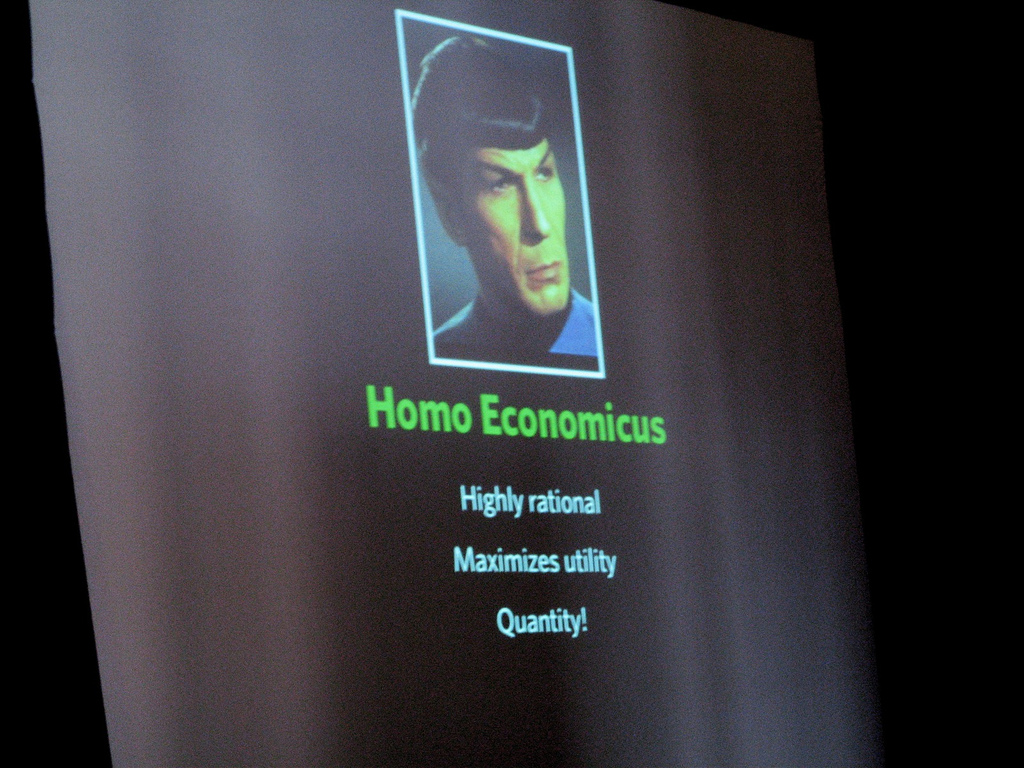
There has been a lot of criticism on the assumptions of the homo economicus model which refers to the concept of humans as rational and narrowly self-interested actors.
“Economics is that way of understanding behavior that starts from the assumption that people have objectives and tend to choose the correct way to achieve them”, says David Friedman in Price Theory: An Intermediate Text describing the concept of the homo economicus in a simple way.
What is interesting to me is that Friedman leads to a point a critic cannot possibly deny: To assume, that people try to act rational. And he is going even further: Acting rational is the only adequate assumption one can do. Friedman in Hidden Order: The Economics of Everyday Life:
“The assumption describes our actions, not our thoughts. If you had to understand something intellectually in order to do it, none of us would be able to walk. Economics is based on the assumption that people have reasonably simple objectives and choose means to achieve them. Both assumptions are false but useful. Suppose someone is rational only half the time. Since there is generally one right way of doing things and many wrong ways, the rational behavior can be predicted but the irrational cannot. If we assume he is rational, we predict his behavior correctly about half of the time – far from perfect, but a lot better then nothing.”
Do you like this post? Then spread it – and follow me on Facebook, Twitter, Google+ or subscribe to the RSS-Feed.
I think it’s right that abstractions can be used to simplify and make a complex world understandable.
Assuming people always try to act rationally is a mistake though, simply because some people believe reason isn’t their only source of knowledge. However, Mises’s insight that a person’s action is purposeful is universally accurate and, I believe, more insightful. When a person chooses between alternatives, he or she is acting toward a particular end by particular means, which is to say the means available (like time) are scarce. With that being the case, economic theory is off to a start.
LikeLiked by 1 person